Are you looking for a straightforward way to communicate important health information about a student? Writing a health condition report can seem daunting, but with the right template, it becomes a breeze. This letter not only ensures that all necessary details are covered, but it also fosters clear communication between parents, teachers, and health professionals. So, let's dive in and explore how to create an effective student health condition report that meets everyone's needs!
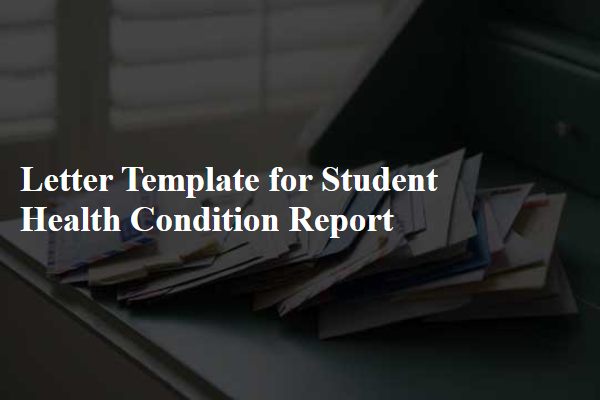
Clarity and Conciseness
A student health condition report should include key elements such as the student's name, date of birth, specific health issue (e.g., diabetes, asthma), and any ongoing treatments or medications. It should clearly state symptoms and limitations impacting the student's academic performance, including physical activities like sports or gym classes. The report must outline recommended accommodations, such as extra time for assignments or access to school nurses. Additionally, a contact section for health professionals involved, such as primary care physicians or specialists, is essential to ensure proper coordination of care. Lastly, signatures from parents or guardians may provide authority for the report's submissions and adjustments to the student's academic program.
Accurate Medical Terminology
A student health condition report plays a crucial role in ensuring appropriate care and support for students with medical issues. Various conditions, such as asthma (a chronic lung disease characterized by inflammation and narrowing of the airways), diabetes mellitus (a metabolic disorder characterized by high blood sugar levels), and allergies (often resulting in allergic rhinitis or anaphylaxis), require careful monitoring and intervention. When documenting a health condition, it is essential to include relevant medical history, medications (like insulin for diabetes or albuterol for asthma), and emergency contacts. Evaluating symptoms (such as wheezing, fatigue, or swelling) accurately provides healthcare professionals with vital information for making informed decisions regarding treatment and school accommodations. Additionally, noting any necessary accommodations (such as a 504 Plan or Individualized Education Program) can help facilitate a supportive educational environment for the affected student.
Privacy and Confidentiality
Student health condition reports must prioritize privacy and confidentiality to safeguard sensitive medical information. Health records of students, including allergies, chronic illnesses, and mental health conditions, are protected under laws such as the Family Educational Rights and Privacy Act (FERPA) in the United States, which restricts access to unauthorized individuals. Schools are responsible for ensuring that personal health information (PHI) is stored securely, often utilizing digital encryption and limited access protocols. Communication with parents or guardians about a student's health should be conducted privately, often in designated personnel areas to maintain discretion. Additionally, regular training for staff on confidentiality policies ensures that all members of the educational institution understand the importance of protecting student health information from breaches or unauthorized disclosures.
Specific Dates and Timeframes
A comprehensive student health condition report provides essential insights into a pupil's medical history and ongoing treatments. With specificity, it details specific dates of medical appointments, such as March 15, 2023, when a comprehensive evaluation was conducted by a pediatric specialist at Children's Hospital in Springfield. It highlights the timeframe of recovery protocols, indicating a recommended two-week rest period following surgery on April 5, 2023, for an appendectomy. The report specifies medication administration times, particularly noting the daily intake of prescribed antibiotics at 8 AM and 8 PM. Such structured timelines help school nurses tailor support for the student's academic participation while considering health constraints.
Contact Information for Further Queries
In case of additional inquiries regarding the health condition report of the student, please reach out to the school's health office at [School Name], located at [Address], with phone number [Phone Number]. The office hours are from [Start Time] to [End Time], Monday through Friday. Email correspondence can be directed to [Email Address]. For urgent matters, please contact [Contact Person's Name], the school nurse, directly at [Nurse's Phone Number]. It is crucial to provide accurate and up-to-date information to ensure the student receives appropriate care and support while attending school.
Letter Template For Student Health Condition Report Samples
Letter template of health condition explanation for course accommodation
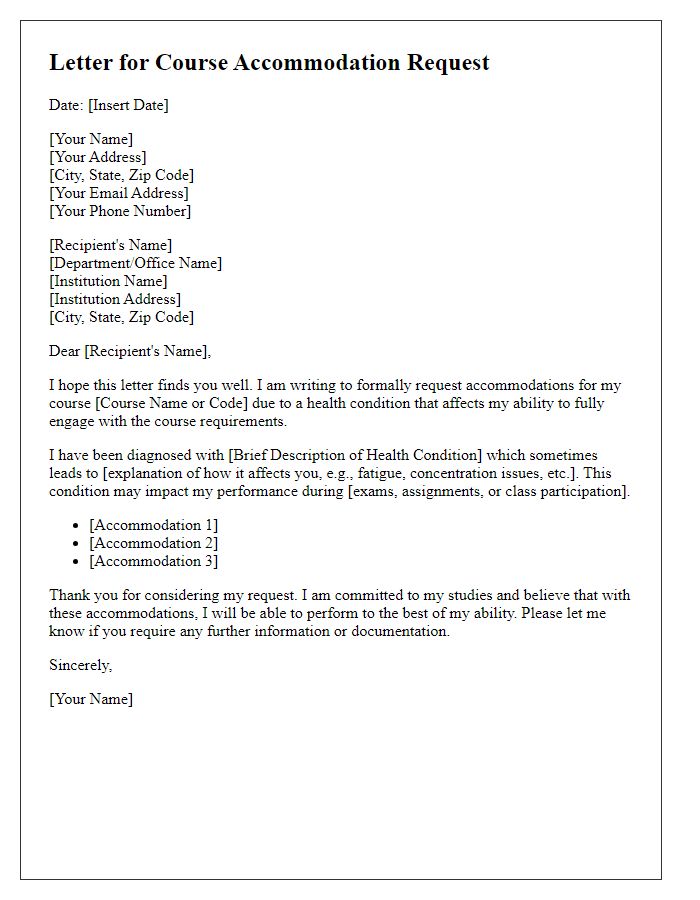

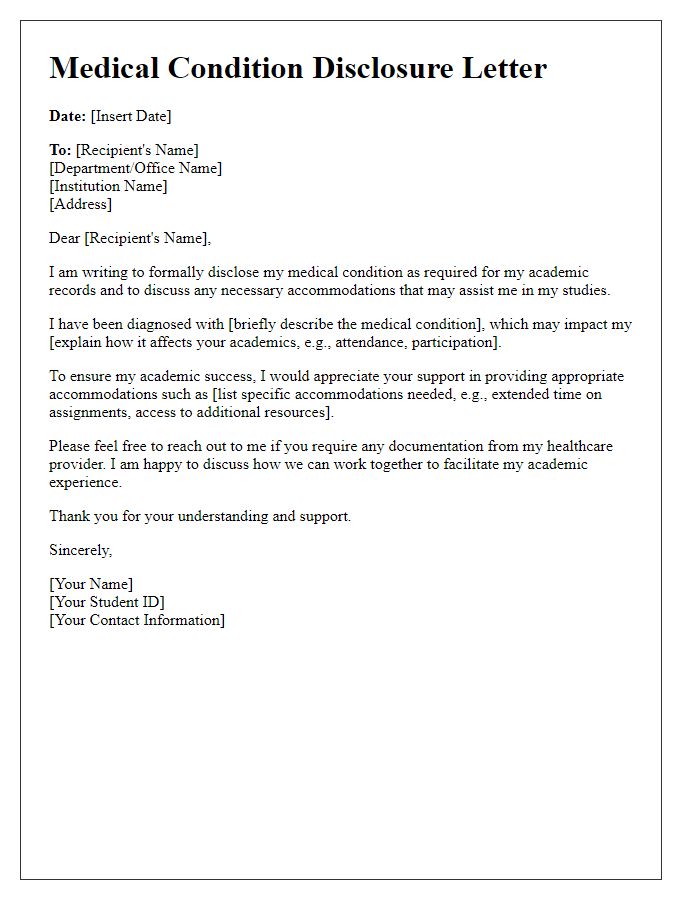
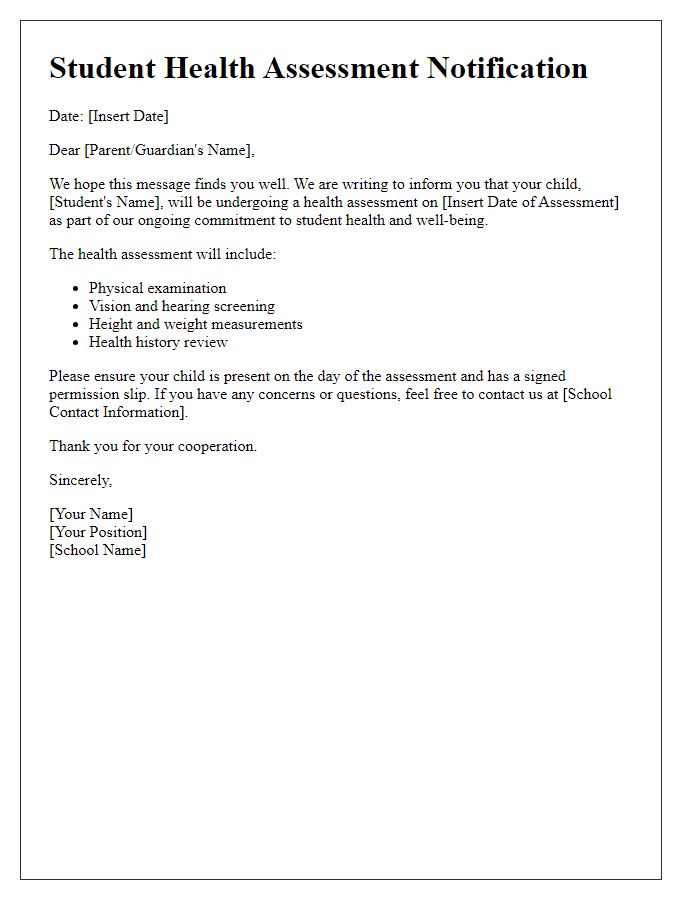
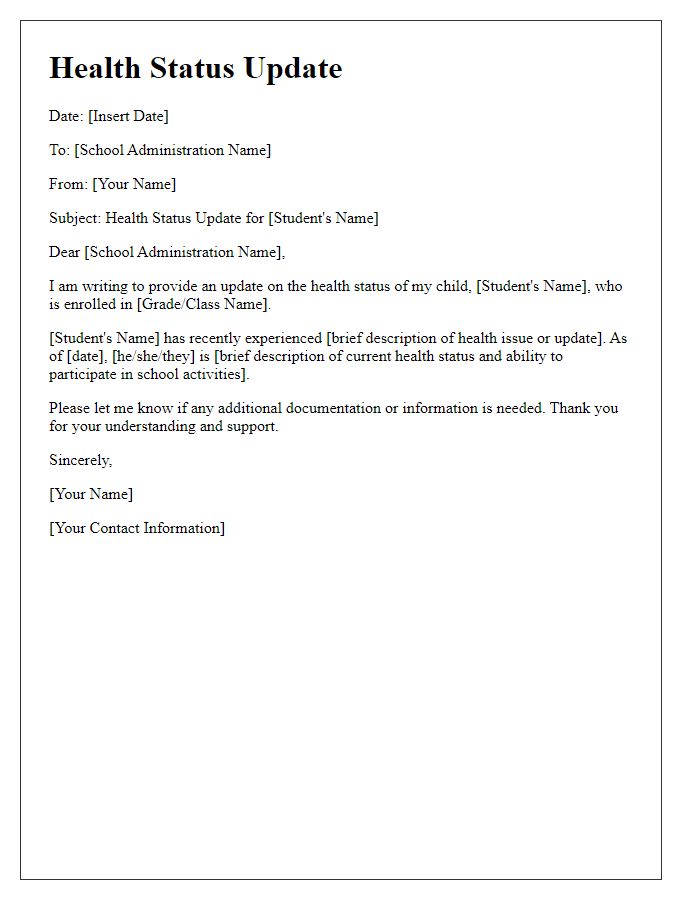
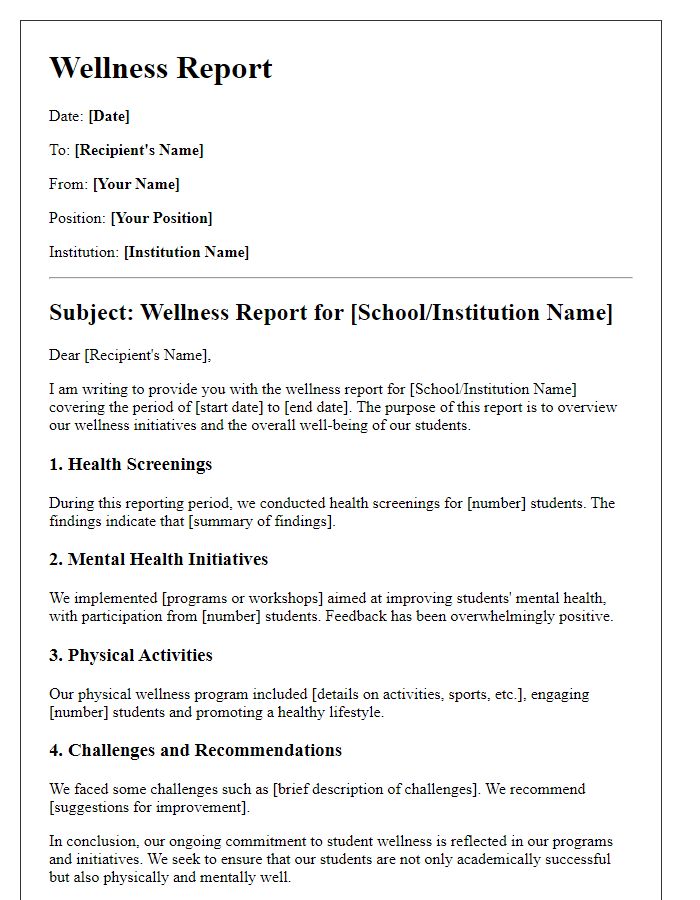
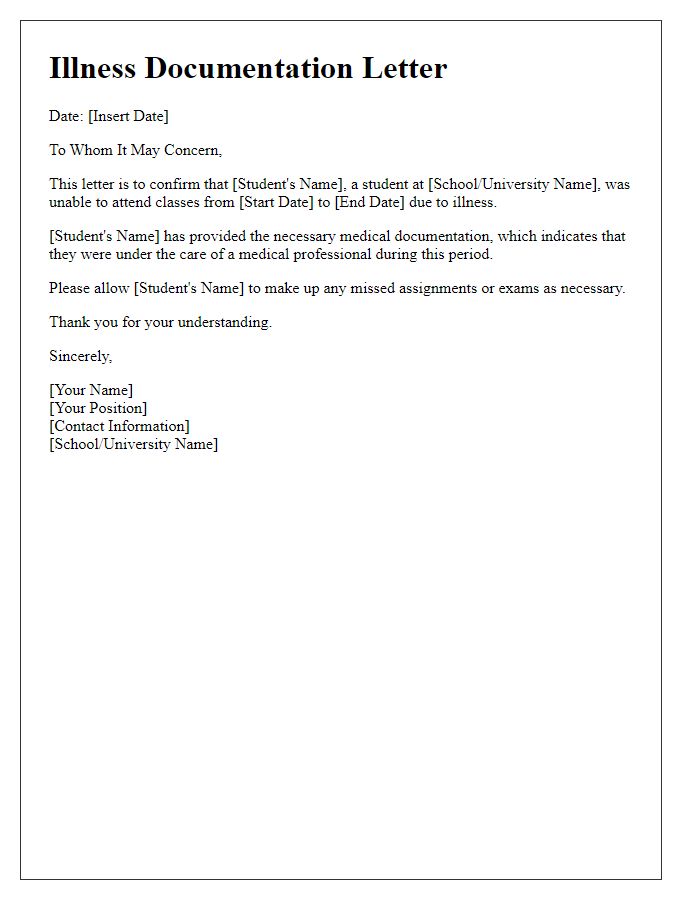

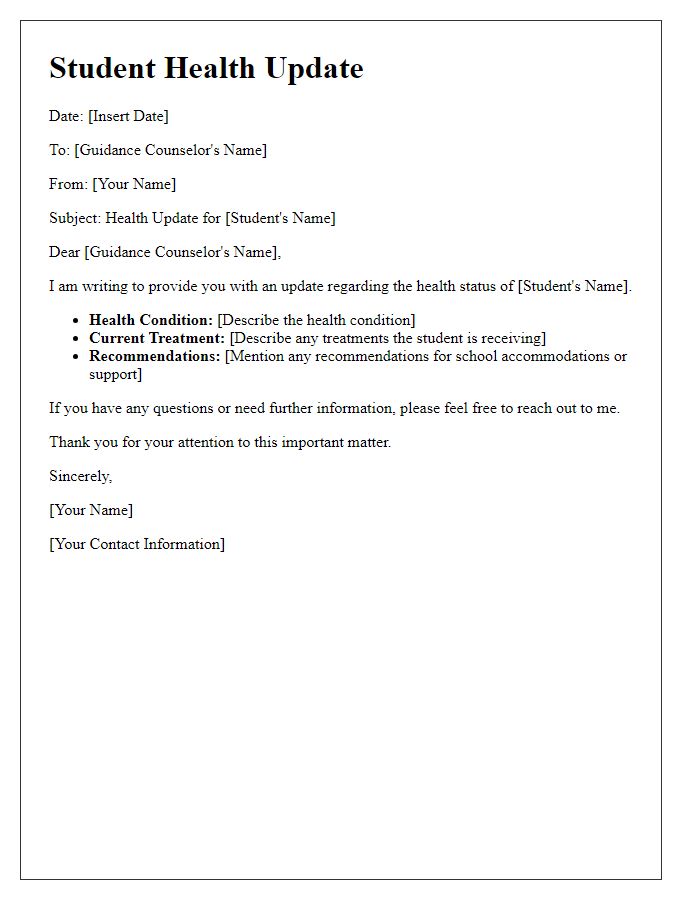
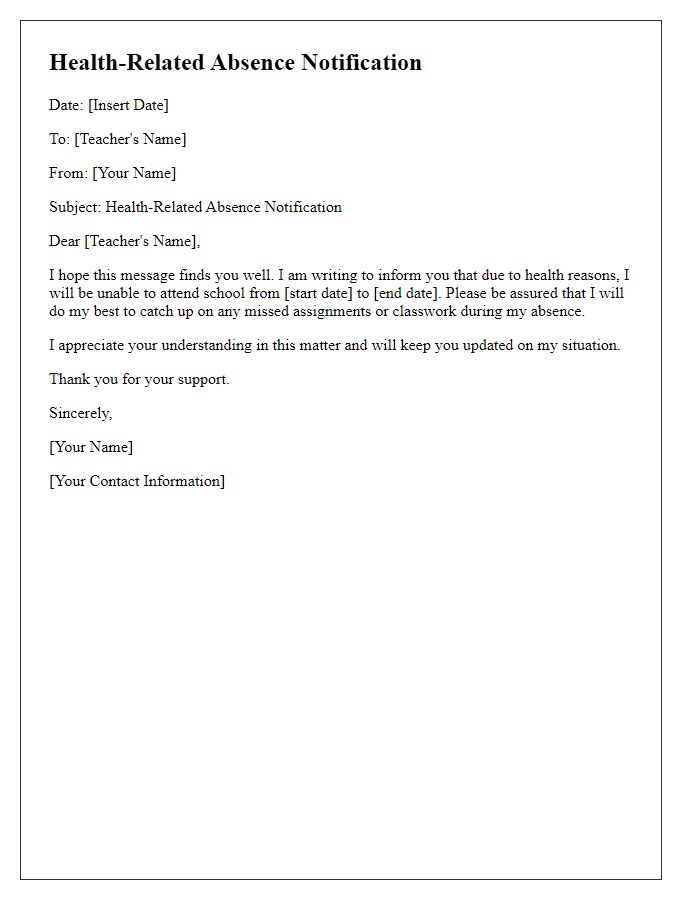
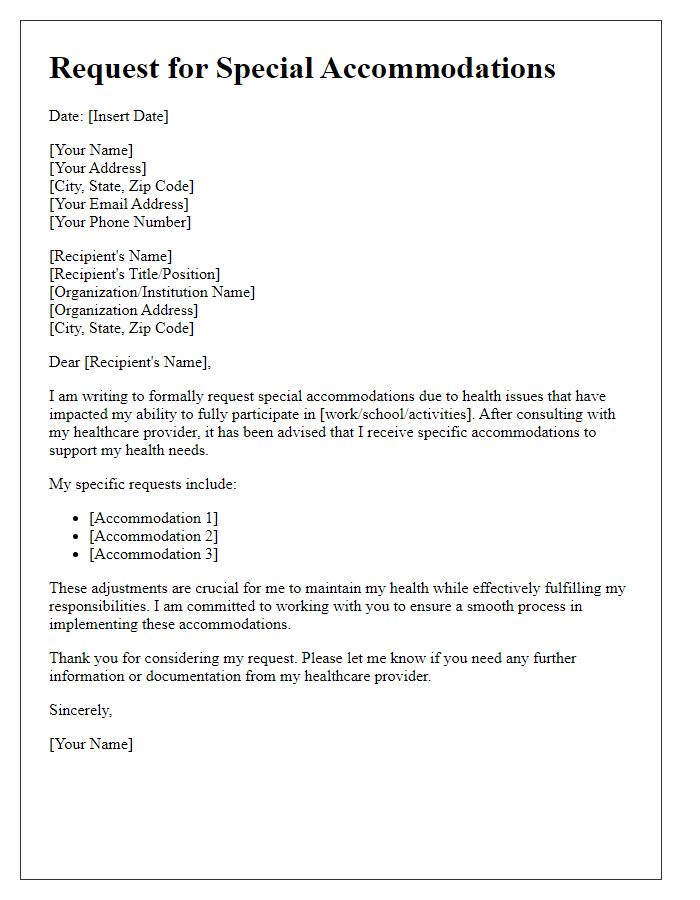


Comments